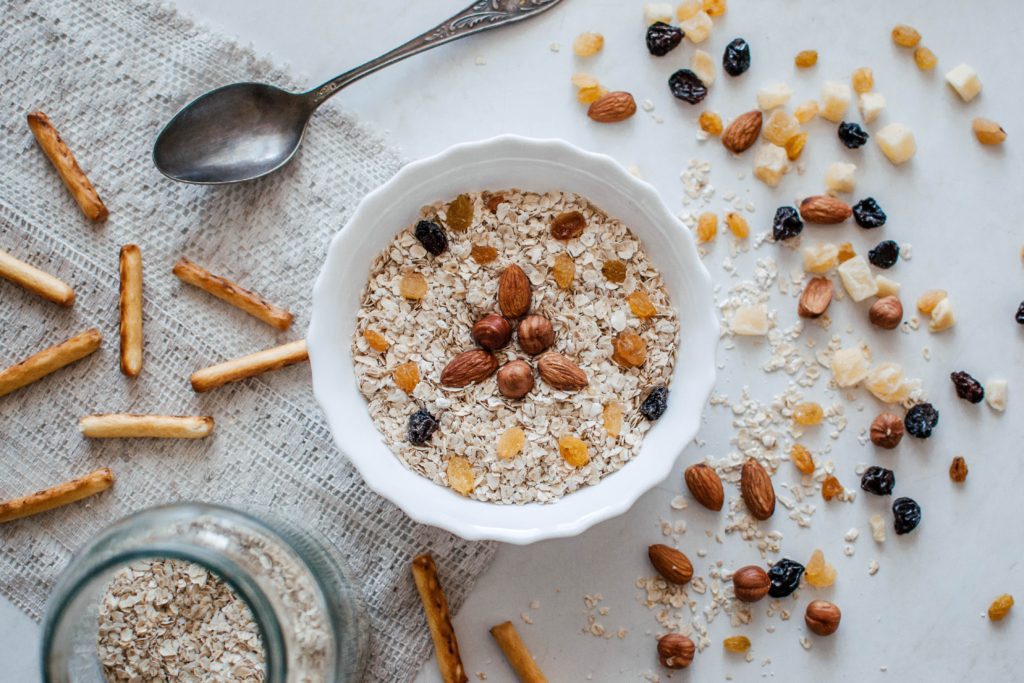By Michelle Shapiro and Nicki Parlitsis | Read Time: 10 Minutes
As we discussed in a previous blog post, high cholesterol levels may not be the immediate concern that we once thought they were. Specifically, it’s more so the oxidation of cholesterol particles by free radicals & pre-existing inflammation that can cause damage, not so much the cholesterol itself.
However, if you find that the cholesterol you have is in fact harmful, this post discusses five ways to lower cholesterol and work at the root by targeting inflammation.
1. Liver detox support
Our liver serves many vital functions in the body. One of those functions is creating and clearing cholesterol. If our liver isn’t functioning optimally, the creation + clearing of cholesterol can become imbalanced.
And while yes, your liver detoxes on its own, it may need extra support in some cases. Supporting your liver – and inflammation to your liver directly – is an independent approach for cholesterol support.
By adjusting lifestyle, nutrition, and supplements, we can work to improve the natural detoxification processes of the liver.
Below are three ways we can support the liver.
- Lifestyle – Prioritizing daily bowel movements, adequate hydration, and daily movement can aid normal liver function.
- Nutrition – Specific foods such as cruciferous vegetables (broccoli, cabbage, cauliflower, brussels sprouts, bok choy, leafy greens), nuts and seeds, and other anti-inflammatory foods (see #3) provide vital nutrients for the liver. Fresh carrot juice or raw carrots in the morning are known to be supportive to the liver as well! The carotenoids in carrots are known to reduce liver inflammation and support overall liver function. One study found that carotenoids were found to have beneficial effects on those with Non-Alcoholic Fatty Liver Disease.
- Supplements – Before adding extra supplements to your regimen, be sure to consult with a knowledgeable practitioner (like our Registered Dietitian Nutritionists at Michelle Shapiro Nutrition LLC) to evaluate your individual needs and medical history. Certain supplements including milk thistle, vitamin C, magnesium, green tea, and more, can provide extra support to the liver.

2. Introduce anti-inflammatory foods and antioxidants
Inflammation can drive high cholesterol. Reducing overall inflammation can support the normalization of cholesterol levels in the body. To target inflammation nutritionally, we can do three things:
- Introduce anti-inflammatory nutrients into the body
- Reduce pro-inflammatory foods
- Support the overall immune system
Here are some anti-inflammatory and immune-supportive nutrients to consume:
- Vitamin A – found in leafy greens, orange/yellow/red vegetables, beef liver, and salmon.
- Vitamin C – found in citrus fruits, bell peppers, strawberries, tomatoes, and cruciferous vegetables.
- Vitamin E – found in nuts and seeds, leafy greens, pumpkin, asparagus, and red bell pepper.
- Probiotics – found in kefir, sauerkraut, tempeh, kimchi, miso, and naturally fermented pickles (no vinegar).
- Alliums – found in garlic, onions, and leeks.
- Cruciferous vegetables – including broccoli, cabbage, cauliflower, brussels sprouts, bok choy, and leafy greens.
While you’re shopping, bring our Anti-inflammatory Grocery Guide with you for purchasing immune-supportive and health-promoting products.

3. Consume more soluble fiber
Soluble fiber traps cholesterol and glucose (sugar) in the gastrointestinal (GI) tract to reduce absorption into the bloodstream. This can help lower cholesterol levels and improve insulin resistance (think: Type II Diabtetes, PCOS, Metabolic syndrome). Soluble fiber is found in psyllium husk powder, flax and chia seeds, artichokes, oats, barley, berries, figs, peas and beans, apples, pears, sweet potato, and avocados.
4. Reduce & eliminate pro-inflammatory foods
- Free radicals generate from immune cell activation, inflammation, mental stress, ischemia, infection, cancer, and aging, in addition to:
- Commercially fried foods that use excess seed oils that oxidize when reused at high heats.
- Commercially baked goods, which use margarines and excess seed oils in combination with high amounts of sugar and refined flours.
- Processed liquid cooking oil, especially when used at high heats.
- Cigarette smoking
- Ultra-processed foods, including chips, packaged snacks, fake meat alternatives, and much more.
- Excess alcohol
- High-stress levels

5. Stress management
This one is difficult in our modern society, but that makes it even more important! Stress can deplete certain vitamins that our liver needs for proper detoxification. It can also contribute to inflammation and oxidative stress.
- Breathing exercises
- Gratitude practice
- Grounding
- Exercise & daily movement
- Therapy
- Meditation
- Adequate sleep
- Time management
Bottom Line
Working with a practitioner who helps you address the root cause of your high cholesterol while maintaining a diet and lifestyle that helps to support your liver detoxification pathways, can help to keep your heart healthy.
Do you want to lower cholesterol in a more natural and sustainable way?
By working with one of our Registered Dietitian Nutritionists at Michelle Shapiro Nutrition LLC, you will receive personalized recommendations and one-on-one nutritional counseling to help you reach attainable goals in a way that fits your lifestyle.
Resources
- https://www.ncbi.nlm.nih.gov/pmc/articles/PMC3614697/
- doi: 10.4067/S0716-97602003000300002
- doi: 10.1002/biof.1223
- doi: 10.1136/bmjopen-2015-010401
- doi: 10.1136/bmj.f6340
- https://www.hsph.harvard.edu/nutritionsource
- https://www.northottawawellnessfoundation.org/wp-content/uploads/2017/11/NOWF-Fiber-Content-of-Foods.pdf